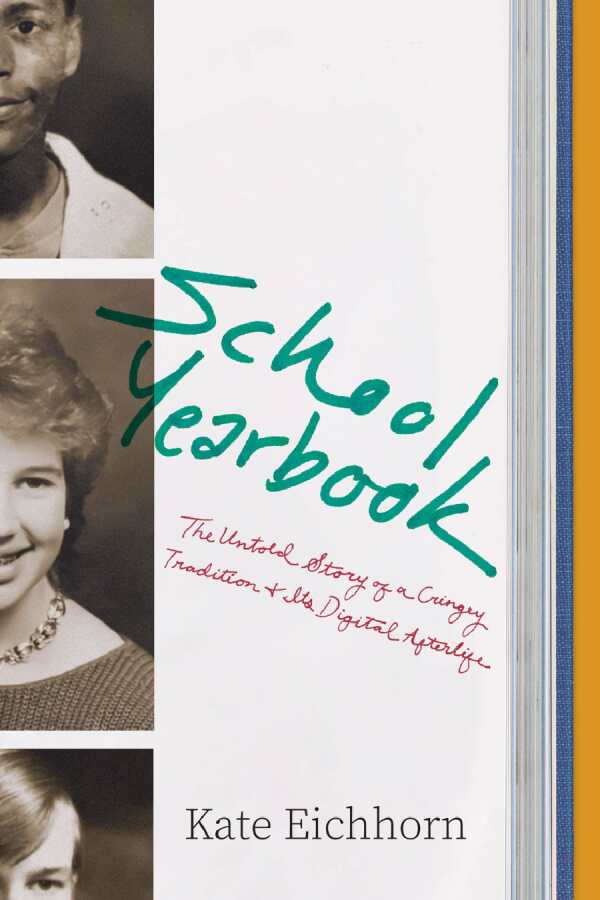School Yearbook
The Untold Story of a Cringey Tradition and Its Digital Afterlife
Kate Eichhorn’s School Yearbook is an illuminating study of the meanings and uses of yearbooks—“semipublic documents” with surprising cultural and political value.
The Yale Banner, circa 1841, is widely considered the first yearbook. By the early 1900s, yearbooks had developed a standard structure, including graduating seniors’ photographs and quotes, “most likely to” lists, and faculty and campus groups.
Yearbooks are “backward-looking in their nostalgia,” the book argues, their conventional format perpetuating biases: they have condoned blackface and KKK links, while the drape for girls’ portraits and tuxedo for boys’ reinforces a gender binary. And the issue of censorship appears in microcosm: Women’s and gay liberation movements seem invisible in the yearbooks of the 1970s to 1980s. Today, teenage pregnancies and mentions of murders by police tend to be expunged. Historical airbrushing extended to yearbooks produced in distressing situations, such as Native American residential schools and Japanese internment camps.
Alongside abundant black-and-white reproductions, the text explores the role yearbooks play in “reputation management”: they appear with regularity as evidence in trials and investigations, as with Brett Kavanaugh’s Supreme Court nomination hearing and after the mass shooting at Columbine High School. They also represent a vast online data source. Indeed, digitized archives contain hundreds of thousands of yearbooks, both a boon and a concern: it eased Eichhorn’s research process during COVID-19; despite lawsuits, Ancestry.com continues to make free use of yearbook images in their advertising.
In energetic style, School Yearbook traces the checkered history of these “memory albums” that attract myriad connotations and agendas.
Reviewed by
Rebecca Foster
Disclosure: This article is not an endorsement, but a review. The publisher of this book provided free copies of the book to have their book reviewed by a professional reviewer. No fee was paid by the publisher for this review. Foreword Reviews only recommends books that we love. Foreword Magazine, Inc. is disclosing this in accordance with the Federal Trade Commission’s 16 CFR, Part 255.

